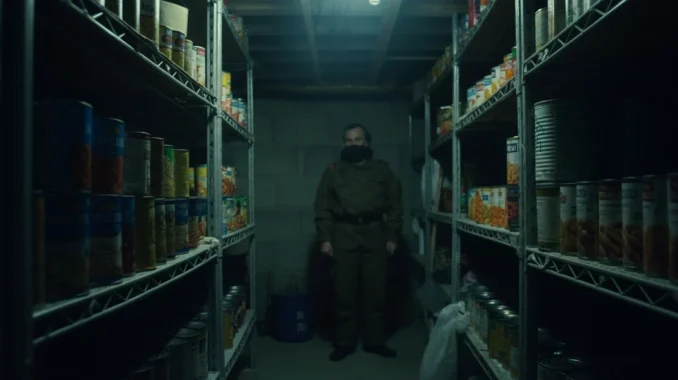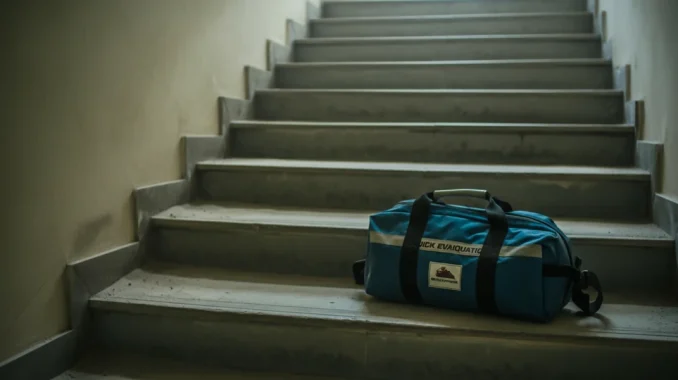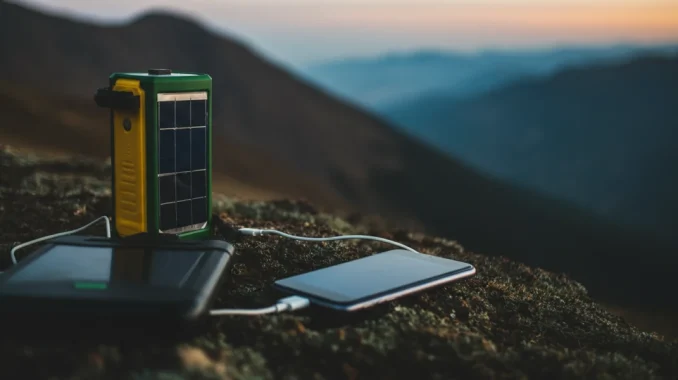In times of war, civil unrest, or violent conflicts, personal safety becomes the highest priority. When law enforcement is overwhelmed, infrastructure collapses, or military actions occur, you must take responsibility for your own security. Knowing what to do, how to react, and where to go can mean the difference between survival and serious danger.
This guide provides practical, easy-to-follow safety tips tailored for Europeans facing crisis situations such as war, political instability, or armed conflicts. Whether you are staying put or forced to evacuate, these strategies will help you stay alive and avoid unnecessary risks.

Step 1: Stay Informed and Aware of Your Surroundings
In any crisis, information is power. You need to be aware of the situation as it unfolds so you can make the right decisions.
How to Stay Informed
- Follow trusted news sources – Stick to official reports, but always verify information.
- Use a battery-powered or solar radio – Internet and mobile networks may go down.
- Join local online crisis groups – Telegram, WhatsApp, or Signal groups often share real-time updates.
- Monitor government and embassy alerts – If you are in a high-risk area, embassies may issue evacuation orders.
Situational Awareness Tips
- Pay attention to crowd behavior – If people are suddenly running or panicked, danger is near.
- Avoid large gatherings or protests – These can quickly turn violent or attract military action.
- Keep a low profile – Avoid drawing attention to yourself or your home.
- Learn to identify threats early – Unusual roadblocks, armed groups, or military activity are warning signs.
What NOT to do:
- Do not rely on a single source of information—cross-check different reports.
- Avoid sharing your location on social media—it can be used against you.
- Do not panic—calm, calculated decisions will keep you safer.
Step 2: Secure Your Home and Personal Space
If staying at home during a crisis, making your living space safer is a key priority.
How to Make Your Home Safer
- Reinforce doors and windows – Use additional locks, metal bars, or barricades.
- Limit outside visibility – Cover windows to prevent being seen from outside.
- Create a safe room – A reinforced interior room where you can hide if needed.
- Stockpile essential supplies – Water, food, first aid, and flashlights should be easily accessible.
- Have a backup power source – Solar chargers or generators can keep you connected.
Escape Planning
- Have multiple exit routes planned in case you must leave quickly.
- Keep a go-bag ready with essentials (see our emergency go-bag guide).
- Identify safe meeting points for family or group members.
What NOT to do:
- Do not advertise your preparations—others may try to take advantage of them.
- Avoid storing all emergency supplies in one place—spread them around in case of looting.
- Do not assume authorities will always be available to help—you may be on your own for days.
Step 3: Moving Safely in a Conflict Zone
If you need to leave your home or travel through dangerous areas, how you move can determine your safety.
Safe Movement Strategies
- Dress inconspicuously – Avoid bright colors, military-style clothing, or anything that attracts attention.
- Move during low-activity hours – Early morning or late at night is safer in many cases.
- Stick to side streets and alleys – Avoid major roads that may have military presence or roadblocks.
- Travel in small groups – Large groups attract more attention.
- Know your escape routes – Plan at least two different ways to reach safety.
What to Do If Stopped at a Checkpoint
- Stay calm and respectful – Sudden movements or hostility can escalate the situation.
- Have identification ready – Keep your passport or ID easily accessible.
- Comply with basic instructions – Avoid unnecessary confrontations.
- Do not give out personal details – Especially if questioned by non-governmental armed groups.
What NOT to do:
- Do not try to run or resist—this can be seen as an act of aggression.
- Avoid traveling at night in unknown areas—ambushes or robberies are more common.
- Do not carry unnecessary valuables—if robbed, compliance is safer than resistance.
Step 4: Avoiding Detection and Staying Undetected
In many crisis situations, staying hidden is safer than confrontation. If military action, looting, or attacks are occurring, your goal is to remain unnoticed.
How to Stay Hidden
- Turn off all lights at night – A well-lit house signals occupation.
- Limit noise – No loud conversations, music, or generators running at night.
- Avoid using fire indoors – Smoke or light from flames can give away your position.
- Stay off the streets unless absolutely necessary.
- Learn to recognize safe hideouts – Abandoned buildings, basements, or hidden rooms can be useful.
Blending In During a Crisis
- Avoid wearing expensive clothes – Looking poor makes you less of a target.
- Do not discuss plans openly – Eavesdroppers may use the information against you.
- If captured or detained, stay silent – Revealing too much can put you at greater risk.
What NOT to do:
- Do not travel alone if you can avoid it—small groups are safer.
- Avoid any confrontations unless you are in immediate danger.
- Do not try to photograph or document military activity—this can be seen as spying.
Step 5: What to Do in Life-Threatening Situations
If you are caught in gunfire, bombings, or violent attacks, your actions must be fast and precise.
If You Hear Gunfire
- Drop to the ground immediately.
- Crawl to cover – Behind concrete walls, cars, or heavy objects.
- Avoid windows – Bullets and shrapnel can pass through glass easily.
- Stay put until the danger passes – Moving too soon can expose you.
If a Bombing Occurs
- Lie flat and cover your head – Shockwaves travel above the ground.
- Avoid being near glass – Explosions can send shards flying.
- Move only when safe – Secondary blasts may follow the first explosion.
If You Are Being Followed
- Change direction frequently – See if they continue to follow.
- Enter a crowded, well-lit area – Avoid isolated places.
- Seek assistance from authorities or shopkeepers.
- Do NOT go home directly – You may be leading them to your safe location.
Conclusion: Stay Smart, Stay Safe
Crises and conflicts are unpredictable, but preparation and smart decisions will greatly improve your chances of survival. By following these safety tips, you can:
- Stay informed and avoid unnecessary risks.
- Secure your home and personal space.
- Move safely and undetected in dangerous situations.
- React appropriately to life-threatening scenarios.
Being prepared is not about paranoia—it’s about ensuring that you and your loved ones have the best chance of surviving and staying safe.
Make a plan, stay aware, and never take unnecessary risks. Your safety is in your hands.




